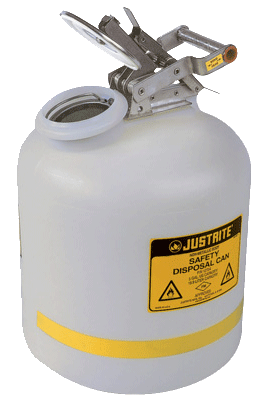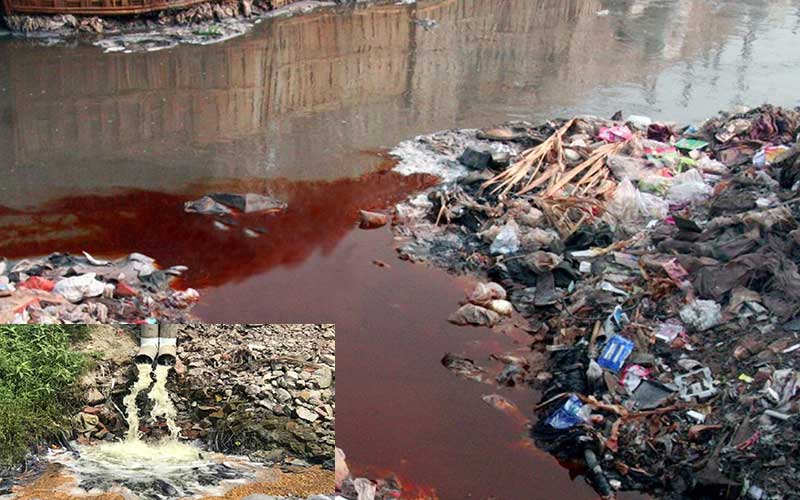Understanding the Comprehensive Process of Liquid Waste Disposal: Best Practices and Environmental Impact Factors To Consider
The management of fluid waste disposal is a multifaceted concern that calls for a complete understanding of different ideal practices and their associated ecological impacts. From the kinds of liquid waste generated to the approaches employed for collection, therapy, and last disposal, each action plays an important function in safeguarding environments and public health and wellness.
Kinds Of Fluid Waste
Understanding the different types of liquid waste is essential for reliable monitoring and disposal methods. Fluid waste can be broadly categorized right into a number of kinds, each calling for distinct handling and treatment strategies.
Industrial liquid waste often consists of harmful materials, including heavy steels, solvents, and chemicals, produced throughout making procedures. These wastes necessitate strict governing conformity to secure human health and wellness and the atmosphere. Domestic fluid waste largely describes wastewater created from households, consisting of sewer and greywater, which, although much less toxic, can still position substantial threats if improperly managed.
Agricultural liquid waste, consisting of drainage from ranches, typically consists of fertilizers and pesticides that can lead to ecological deterioration if not dealt with sufficiently. Clinical fluid waste, created from medical care centers, consists of infected liquids such as bodily liquids and chemicals, calling for specialized disposal approaches to avoid infection and environmental contamination.
Lastly, oil and grease waste, normally created by dining establishments and vehicle industries, can trigger extreme clogs in sewer systems if not taken care of effectively. Recognizing these categories facilitates targeted approaches for therapy, compliance with policies, and efficient disposal methods, ultimately advertising environmental sustainability and public health safety.

Collection Methods
Reliable collection approaches are critical for the correct management of fluid waste, guaranteeing that it is gathered securely and effectively prior to treatment or disposal. Numerous methods are employed relying on the sort of fluid waste produced, the quantity, and the particular characteristics of the waste.
One usual approach is the use of committed collection storage tanks or sumps, which are made to record liquid waste at the resource. These systems frequently include pumps that promote the transfer of waste to larger storage space containers or treatment centers. Furthermore, mobile collection systems outfitted with vacuum innovation are used in situations where waste is created intermittently or in hard-to-reach areas.
For industrial settings, closed-loop systems can effectively reduce leaks and spills, enabling the recuperation and reuse of liquid waste. It is also crucial to educate personnel on correct collection protocols to minimize threats connected with unsafe compounds.
Additionally, carrying out normal maintenance routines for collection equipment makes certain optimal performance and security. The assimilation of innovative monitoring systems can enhance collection performance by offering real-time data on waste levels and potential dangers. On the whole, effective collection techniques are foundational to sustainable fluid waste monitoring techniques.
Therapy Procedures
Therapy procedures play a vital role in the management of fluid waste, transforming potentially hazardous products right into secure effluents or multiple-use sources - liquid waste disposal. These processes can be extensively categorized into physical, chemical, and organic approaches, each customized to deal with particular contaminants present in the waste stream
Physical therapy methods, such as sedimentation and filtration, job by removing suspended solids and particle issue. These strategies are usually the very first step in the treatment chain, efficiently decreasing the load on succeeding processes. Chemical therapies include the use of reagents to neutralize hazardous substances, speed up hefty metals, or oxidize natural toxins, therefore enhancing the safety and security of the effluent.
Organic treatment procedures, including turned on sludge systems and anaerobic food digestion, maximize the all-natural capabilities of bacteria to deteriorate natural matter. These techniques are specifically effective for wastewater having naturally degradable toxins. Advanced treatment innovations, such as membrane layer filtering and progressed oxidation processes, are progressively utilized to achieve higher levels of filtration.
Incorporating a combination of these therapy methods not only makes sure compliance with governing standards however additionally promotes environmental sustainability by recovering useful sources from fluid waste.
Disposal Options
Just how can organizations make sure the responsible and risk-free disposal of liquid waste? Effective disposal alternatives are crucial for securing public wellness and the environment. The main techniques consist of land incineration, treatment, and disposal followed by discharge right into local wastewater systems.
Land disposal involves the careful containment of liquid waste in designated landfills, ensuring that it does not leach into surrounding soil or water. Incineration, on the other hand, topics fluid waste to heats, transforming it right into ash and gases, which need proper filtering to lessen discharges. This method is appropriate for harmful wastes that can not be dealt with with standard ways.
In instances where fluid waste can be treated, organizations might choose chemical or biological therapy procedures to counteract damaging elements before releasing the dealt with effluent into local systems. This path usually aligns with regulatory requirements, making sure that the effluent satisfies safety criteria.
Inevitably, companies need to carry out comprehensive assessments of each disposal option to determine its stability, thinking about elements such as waste make-up, governing conformity, and prospective threats to wellness and the atmosphere. By selecting ideal disposal techniques, businesses can add to an accountable waste monitoring method.
Ecological Impact
The ecological effect of fluid waste disposal is an important factor to consider for organizations seeking to minimize their ecological footprint. Furthermore, the discharge of unattended or inadequately treated waste right into surface area waters can result in eutrophication, leading to oxygen deficiency and the succeeding fatality of fish and click for more other organisms.

To mitigate these effects, organizations must adopt ideal practices such as executing rigorous waste therapy procedures, advertising recycling and reuse, and sticking to regulative requirements. By taking a proactive approach to fluid waste management, entities can substantially minimize their environmental impact while sustaining lasting development goals. Ultimately, this hyperlink an extensive understanding of the environmental influences connected with liquid garbage disposal is important for notified decision-making and liable stewardship of natural deposits.
Final Thought
Reliable management of liquid waste is critical for protecting environmental stability and public health. By taking on ideal techniques in therapy, disposal, and collection, along with adherence to governing criteria, the possibility for damaging contamination of communities can be considerably reduced. Continuous developments in technology and procedures add to lasting waste administration efforts. Inevitably, an extensive understanding of liquid garbage disposal not only alleviates ecological impacts but also cultivates a dedication to accountable resource administration and environmental stewardship.
The management of fluid waste disposal is a multifaceted issue that needs a thorough understanding of various ideal techniques and their linked environmental influences. From the kinds of fluid waste produced to the approaches used for collection, therapy, and last disposal, each step plays a crucial function in guarding ecological communities and public health.The ecological impact of liquid waste disposal is an important factor to consider for companies looking for to lessen their eco-friendly impact. Eventually, a detailed understanding of description the environmental effects linked with fluid waste disposal is crucial for informed decision-making and responsible stewardship of natural resources.
Inevitably, a thorough understanding of fluid waste disposal not just minimizes ecological effects however also cultivates a commitment to liable source administration and environmental stewardship.
Comments on “Industrial Wastewater Treatment: Advanced Methods for Effective Administration”